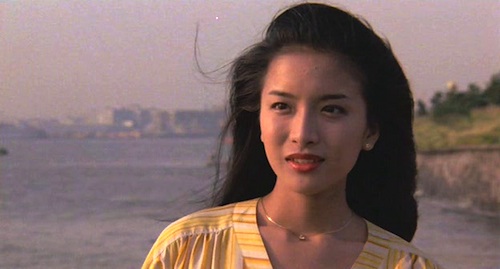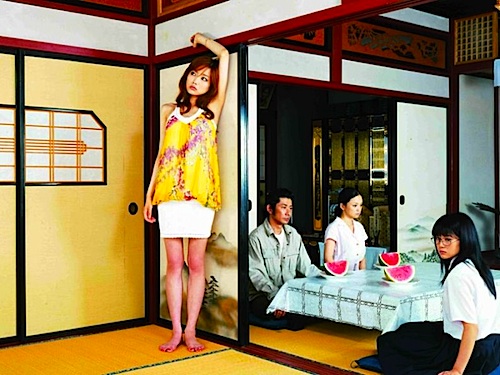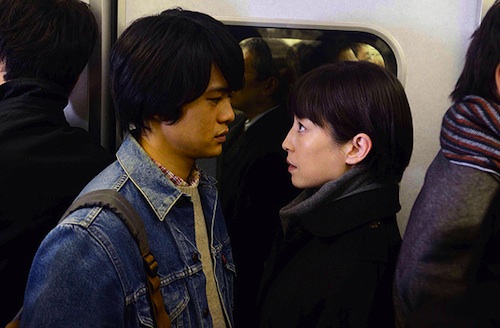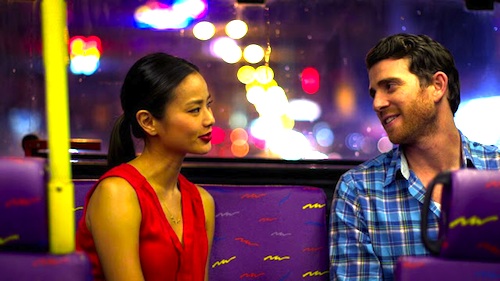By Joe Bendel. Makoto Kido is the sort of teacher who is popular with his students. He is lax about discipline and often late to his own classes. The only drawback is that he often lectures on subjects that will not be on their university entrance exams, like the procedure for making nuclear bombs. Unfortunately, it is a subject he knows cold. When he launches his campaign of nuclear blackmail, it will be up to hardnosed Inspector Yamashita to stop him in Kazuhiko Hasegawa’s classic The Man Who Stole the Sun, which screens as part of the 2015 New York Asian Film Festival’s tribute to Ken Takakura and Bunta Sugawara, two late, great, manly icons of Japanese Cinema.
Kido is kind of a hippy, but he is not very political. Frankly, he will have a hard time coming up with demands for the government to meet. Instead, he is more of your basic bored sociopath. Ironically, when Yamashita first meets Kido, he assumes the science teacher is decent enough for a long-hair, even though we know he has already started laying the groundwork for his evil scheme.
As fate will dictate, Kido’s class is hijacked while on a field trip, by a deranged man seeking redress from the emperor. Yamashita draws the case, impressing Kido with his gruff dedication to duty. After boosting some plutonium from the Tōkai nuclear plant, he proceeds to make two bombs—one to prove his skills with the authorities and one for him to dangle over the prime minister’s head. As part of the ground rules he establishes, Kido (employing a home-made voice modulator) will only speak with the confused Yamashita.
In many ways, Sun is a blast-from-the-past time-capsule of a film. Among other things, it reminds us of the time when most television stations signed off around midnight by playing the national anthem. Evidently, during the late 1970s in Japan, TV stations also used to stop baseball games promptly at ten o’clock to accommodate the evening news. It seems Kido put a stop to that practice. Running out of ideas, Kido reaches out to Zero Sawai, a DJ catering to the youth culture. She is cute as a button, but she also serves as a scathing critique of a myopic media that cannot see the dirty bomb for the trees.

Bunta Sugawara is stone cold awesome as Yamashita, an old school throwback, who would be perfectly at home in the films of Don Siegel and Sam Fuller. Yet, Takayuki Inoue’s massively groovy music might just be even cooler. It is strange that the soundtrack album has not been more eagerly sought after by crate-diggers. Real life rock star Kenji Sawada is also frighteningly convincing as the coldly detached psychopath. Watching him play Kimiko Ikegami’s naïve Sawai is especially chilling.
Co-written by Hasegawa and Leonard Schrader (brother of Paul, who also co-wrote a Tora-san movie), Sun is an ambitious, large scale film, clocking in just shy of two and a half hours. Hasegawa stages some absolutely insane action sequences, yet he dedicates most of the first act to the quiet process of Kido’s bomb-building. Frankly, this is not a film ISIS needs to see, because it is darned instructive. However, if you enjoy potentially apocalyptic thrillers loaded with attitude and funky Me Decade period detail than this is your ticket. Highly recommended for fans of 1970s cinema and crew cut cops, The Man Who Stole the Sun screens this Wednesday (7/1) at the Walter Reade, as part of this year’s NYAFF.
LFM GRADE: A
Posted on June 30th, 2015 at 12:38pm.




